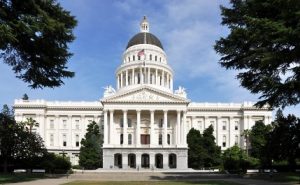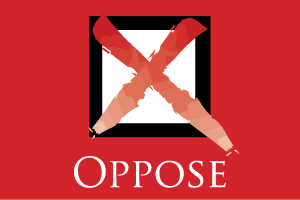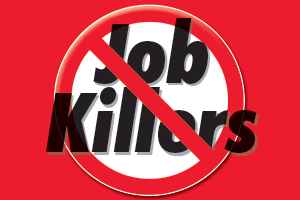 A California Chamber of Commerce-job killer bill and three opposed bills are expected to be voted on today in the Senate and Assembly as legislators wrap up pending bills in preparation for Friday’s end-of-session deadline.
A California Chamber of Commerce-job killer bill and three opposed bills are expected to be voted on today in the Senate and Assembly as legislators wrap up pending bills in preparation for Friday’s end-of-session deadline.
Job Killer Bill
SB 62 (Durazo; D-Los Angeles) significantly increases the burden on nonunionized employers in the garment manufacturing industry in California by eliminating piece rate as a method of payment even though it can benefit the employee, expanding joint and several liability for any wage violations to the entire supply chain, and shifting the evidentiary standards in a Labor Commissioner hearing to limit the ability for an employer to defend against an alleged wage violation. These additional requirements will encourage companies to contract with manufacturers outside of California, thereby limiting the demand and workforce of garment manufacturers in California.
Nothing in SB 62 will address the problem of underground, bad actors in the garment industry evading the law. Instead, SB 62 simply eliminates piece rate work and allows those bad actors to continue to operate with business as usual while passing the buck to companies that have no control over these workers. To eliminate the bad actors that presently operate outside of the law in this industry, the Legislature should look to its existing enforcement mechanisms and educating workers about their rights.
Opposed Bills
- AB 1074 (Lorena Gonzalez; D-San Diego) prior to amendments, would have imposed an onerous and stringent process that is unlimited in time for specific employers to return employees to the workforce for specified industries, including hotels and restaurants that have been disproportionally impacted by this pandemic, which would have delayed rehiring and employers’ ability to re-open after being forced to close or reduce operations due to COVID-19. Job killer tag removed due to April 19, 2021 amendments eliminating COVID-19 related recall provisions from the bill.
Specifically, this measure expands statutory contractor-retention policies to apply to “hotel services including guest service, food and beverage, or cleaning performed within the State of California, including any subcontracts for janitorial or building maintenance services or hotel services.” As written, however, every function a hotel contractor performs to the benefit of its guests would be subject to retention, including: booking systems, website disability-access programs, pool cleaning services, hotel advertising services which offer special pricing, and every other potential service the guest interacts with.
California’s hotel industry was the most impacted industry by the pandemic, with more than 20% of all hotels closing and more than 122,000 employees laid-off during the pandemic. By most estimates, it will take three to five years to return to pre-pandemic levels, and longer for some metropolitan areas. AB 1074 would not help the lodging industry or people employed by it, but would increase operating costs, threaten small businesses, and represent a significant shift in how the law approaches service contracting.
- AB 1041 (Wicks; D-Oakland) prior to amendments, would have significantly expanded multiple existing leave requirements in California that apply to employers of five or more, including small employers with limited employees who are struggling as a result of the pandemic, by allowing an employee to take leave to care for any family member or any person of their choosing without limitation, and subjecting the employer to costly litigation under the Fair Employment and Housing Act or the Labor Code Private Attorneys General Act (PAGA), for any alleged interference, interruption, discouragement, or denial. Job killer tag removed due to April 22, 2021 amendments narrowing the bill so that the only additional persons that an employee can take leave to care for is one designated person per 12-month period.
The CalChamber opposes AB 1041 because it significantly expands the California Family Rights Act (CFRA) and paid sick leave to allow an employee to take protected and/or paid time off to care for any person of their choice. The existing provisions of CFRA are already challenging, confusing, and burdensome, and small employers who are struggling as a result of this pandemic are overwhelmed by the current law. Additionally, existing paid sick leave laws are difficult to administer. Expanding both of these laws as proposed under AB 1041 will simply expedite the shutdown of more small businesses in California and further expose employers to unnecessary costs and more litigation.
Like many of the bills and regulations that have been introduced over the past year, AB 1041 once again tries to make California’s employers pay for all of an employee’s personal needs outside of work instead of considering alternative solutions that could benefit both employers and employees. Instead of imposing new costs on employers, the Legislature should reform California’s unnecessarily rigid wage and hour laws to allow employees flexibility in their weekly schedules that would allow workers more time to address personal needs.
- SB 410 (Leyva; D-Chino) would specifically exempt Cal/OSHA regulations from the Standardized Regulatory Impact Assessment (SRIA) process, which provides thorough economic analysis and Department of Finance oversight for proposed regulations and is presently applicable to all regulations with a financial impact of more than $50 million.
The SRIA process was created by the Legislature in 2011 with SB 617 (Calderon). The bill was supported by the CalChamber and was passed by vast majorities in both houses with the goal of ensuring that new regulations of a sufficiently large size (economic impact exceeding $50 million) should be thoroughly analyzed and that the Department of Finance (DOF) should review that estimated economic impact to confirm the methodology used in these estimates were suitable.
The process requires consideration of the creation or elimination of jobs within the state and the creation of new or existing businesses in the state, as well as the benefits of the regulation to the health and welfare of California residents, worker safety, and the state’s environment. Substantively, SRIA provides the most thorough analysis of any performed by the state, including weighing whether there are more cost-effective solutions, as well as looking at potential alternative actions by other agencies. The DOF is required to review the final SRIA analysis to check its underlying assumptions and conclusions.
SB 410 would exempt one agency (Cal/OSHA) from the SRIA requirements. There is no logical reason for this specific exclusion; Cal/OSHA’s regulations are no less important than those of other agencies.
As the COVID-19 pandemic has shown, science and analysis take time, and policy actions must be shaped by that knowledge. The SRIA process ensures that high-quality, thorough analysis is available for California’s regulations—and its removal would only harm public policy outcomes at Cal/OSHA.


